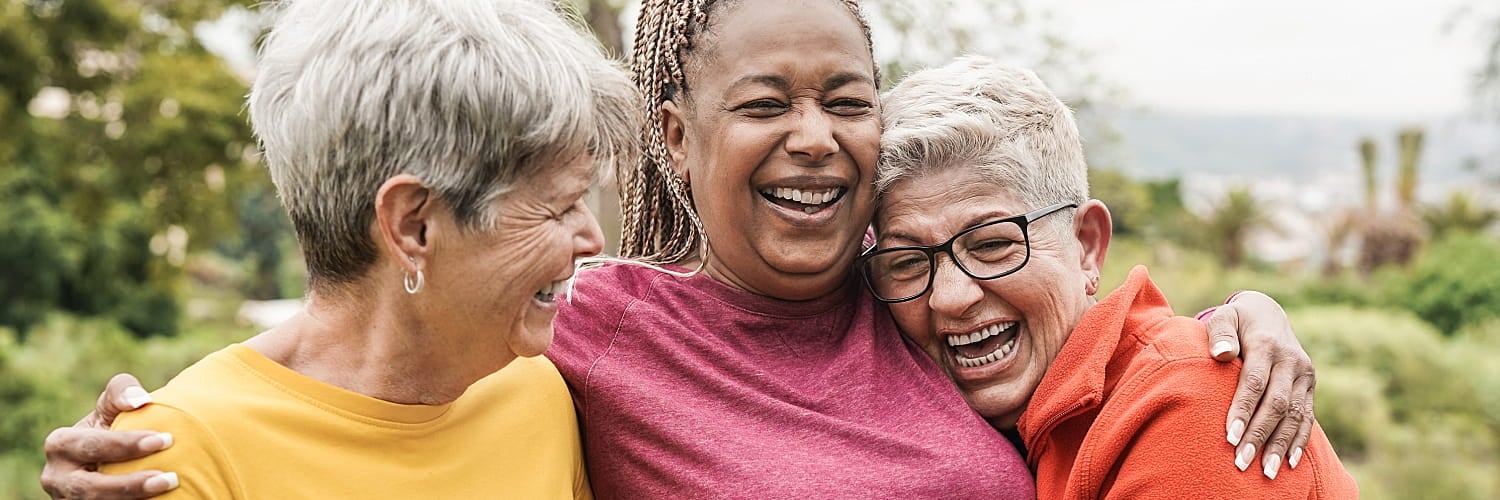For most people, COVID-19 precautions in 2020 made socializing and attending outdoor activities such as festivals, picnics and family reunions impossible. Now that restrictions have eased, you're probably ready to enjoy some senior activities, get some physical exercise, and spend time with your friends and family again.
Before you head outdoors in the summer heat, it's important to take proper senior safety precautions to avoid harming your health. According to the Centers for Disease Control and Prevention (CDC), as we age, our bodies don't adjust as well to temperature changes as they did when we were younger. People who are 65 or older are therefore at greater risk of experiencing heat-related health problems during the summer.
Fortunately, taking summer safety precautions is easy once you know how to protect yourself. If you're a caregiver for a parent or another aging family member, you can take steps to protect them as well. Here are six summer safety tips for older adults eager to make the most of the long summer days.
1. Stay on Top of Hydration
Your body always needs plenty of fluids to help digest food, absorb nutrients and eliminate waste, but it's especially important to senior safety to stay hydrated when temperatures rise. Proper hydration can help prevent dizziness, heat cramps, swelling in the feet and ankles, heat exhaustion, and medical emergencies such as heatstroke.
To stay hydrated, try to drink at least eight glasses of water per day. You can also hydrate with milk, juices or soups that contain no added sugars. "Don't wait until you feel thirsty to drink water or other fluids," says the National Institute on Aging (NIA). If you drink alcohol, be sure to do so in moderation, as alcohol can increase urination and cause mild dehydration.
2. Monitor the Heat Index
Before you head outside in hot weather, check the weather forecast for the heat index temperature. This represents what the temperature feels like when humidity is factored in and sweating doesn't cool your body enough. If the heat index is 90 degrees or above, you're at increased risk of facing heatstroke, heat cramps or heat exhaustion, according to the National Weather Service, so try to stay inside when the heat index climbs.
3. Exercise During Cooler Hours
While exercising is an important part of staying both mentally and physically healthy, taking a walk at noon or mowing the lawn in the afternoon in high heat can be dangerous for older adults due to the possibility of overheating and dehydration, especially in high-humidity climates. To be safe, schedule walks, yard work or other outdoor exercise in the early morning or at dusk, when temperatures are lower and sun exposure is minimal.
4. Wear Clothing That Will Help You Remain Cool
To stay cooler, wear loose-fitting, lightweight clothing made from cotton, linens or other plant-based fabrics, such as hemp or bamboo, that will allow your body to "breathe" through the fabric. If you plan to exercise, however, you may prefer activewear made of synthetic materials such as polyester and nylon, which will wick moisture and dry quickly, causing your sweat to evaporate and leaving you cooler.
5. Protect Your Skin From Sun Exposure
The Skin Cancer Foundation recommends wearing sunscreen with at least a 15 SPF (Sun Protection Factor) indoors and a water-resistant formula with at least 30 SPF outdoors. But sunscreen isn't the only form of protection available. Wearing "sun protective" clothing that has an Ultraviolet Protection Factor (UPF) of at least 30 to 49 UPF offers "very good protection" against sun exposure, according to the Skin Cancer Foundation. UPF 50+ clothing offers "excellent" protection, blocking 98% of the sun's rays.
6. Wear Sunglasses
When you're taking precautions to reduce the effects of sun exposure, don't overlook your eyes. The NIA recommends wearing sunglasses that block 99% percent of ultraviolet (UV) radiation to protect your eyes from too much sunlight. Wearing sunglasses can also help prevent cataracts, according to the National Eye Institute. For even more protection, add a brimmed hat to block the sun.
Now that you know how to venture outside safely in the summer, it's time to get back to enjoying the outdoor activities you love. To make sure your friends and loved ones also stay safe, pass these tips along to them as well!


 Deb Hipp
Deb Hipp










